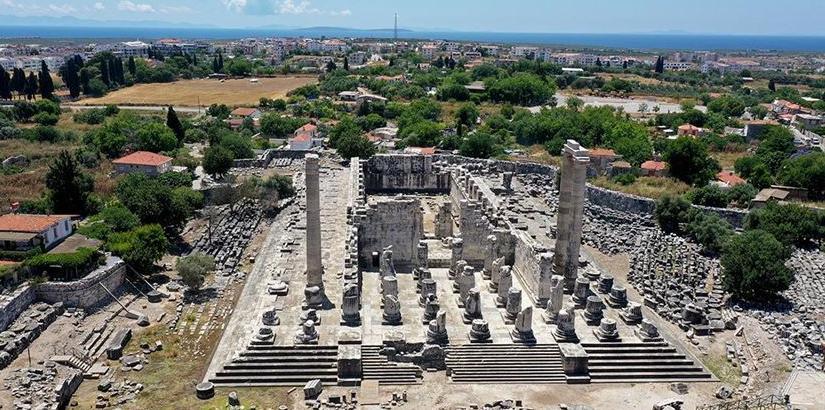Held in the sway of today’s pandemic, I recalled how an ancient pandemic inflicted anguish and woe upon Didyma, writes Glenn Maffia. Not in as direct a way as physical suffering, but significant consequences in the economic and political sphere.
The context was what we refer to as the Peloponnesian War, primarily fought between the two of the largest Greek city states, Athens and Sparta.
We are fortunate to have a firsthand account of this war as laid out by Thucydides. Here I merely concentrate on the pandemic which afflicted Athens.
The arrival of the ‘plague’
Thucydides, an Athenian who rose to the rank of general in the early stages of this war, recounts it was believed that this “plague”, as he describes it, originated in Ethiopia and spread from there into Egypt, Libya and much of the territory of the King of Persia, otherwise well-documented trade routes.

The first cases appearing within Athenian territory were noticed at Piraeus, Athens’ main port and sole source of food and supplies.
The “plague” reared its head during the second year of the war, in 430 BCE, when an Athenian victory appeared probable, even inevitable.
The implications on Athenian society resulted in a lack of adherence to religious practices and laws were wantonly disregarded. To exaggerate the confusion and disharmony further, Pericles, the leader of Athens, died as a result of the “plague”. The loss of this strong leading man could only but bring joy to the Spartans and grief to the Athenians.
The main consequence was a major shift in the fortunes of war. Now Sparta was infinitely in the position of ascendancy, Athens and its allies including its trade cities dotted along the Aegean coast were now in mortal peril.
Though Miletus, whose territory includes Apollo’s Temple at Didyma, had split from the Athenians to become an independent city it would be no match to stand alone against the Persian threat from the east should they wish to return to lands once ruled over by their Kings. A Greek Alliance had previously seen them off decades earlier.
Aware of this threat the Milesians changed their allegiance to the Spartans, little knowing Sparta, now impatient for a successful conclusion to the Peloponnesian War, had made a deal with the Persians to relinquish all Greek lands upon the Aegean Sea.
While this would impact upon the Temple of Apollo financially it would not have done religiously as the Persians allowed all beliefs to continue unabated, a matter of, “Just pay your taxes, and you can believe what you like.”
Didyma in peril
Of course, Didyma is not in such peril today unless you see, as I do, the invasion of cafés/bars encircling the Temple as gratuitous exploitation of an incredible ancient site.
I’ve counted 15 such establishments in all now and it is getting more like Şirince as the years pass. Though one may see the lack of foreign tourists as a financial disaster, would it be any less worrying when these foreigners arrive with their money and potentially carrying the coronavirus? The new trade routes being air travel.
Therefore, one pandemic has echoes of another, 2,500 years earlier. One that has never entirely been given definition, historians have long searched for the identity of the disease behind the Plague of Athens.
There have been many postulations from a form of Bubonic plague in one of its many variations, typhus, smallpox, measles or toxic shock syndrome. Later, due to descriptive similarities, some have argued for Ebola or a related viral hemorrhagic fever. Or it may just have been that the Plague of Athens was caused by a disease that no longer exists.
I notice here history conjures alarming parallels with what is occurring in England today; civil disobedience (crowded beaches and pubs), laws enforced erratically (why wasn’t Dominic Cummings dismissed?), a leader, though one not to be described as strong, so nearly becoming a fatality, and a political war still raging with the European Union.
And yet, I still hear people murmur that ‘history’ does not matter, it has nothing to offer us today. Who knows, we may have even found our ‘new Spartan ally’ who will sell us out if it suits their purpose; the USA!
